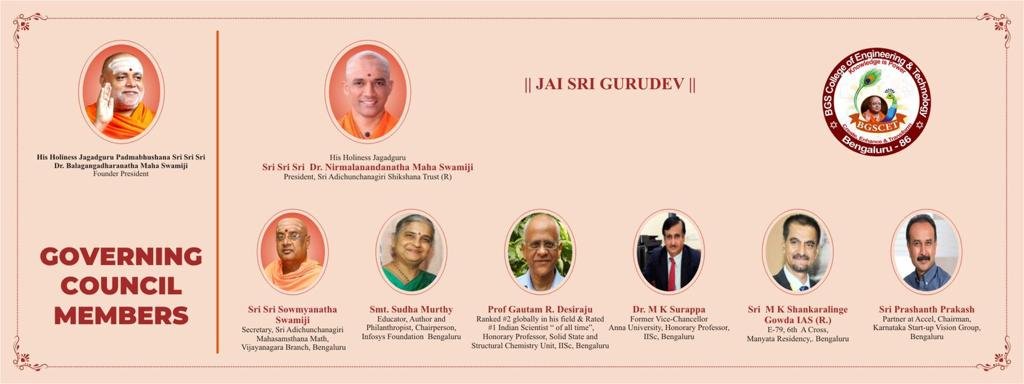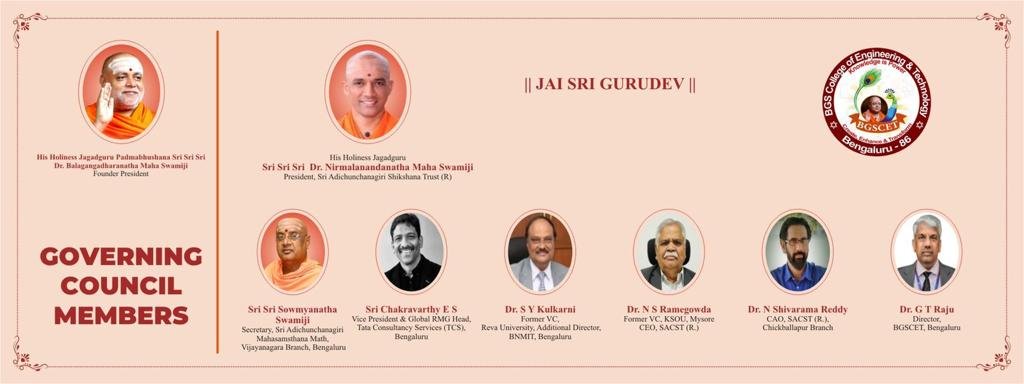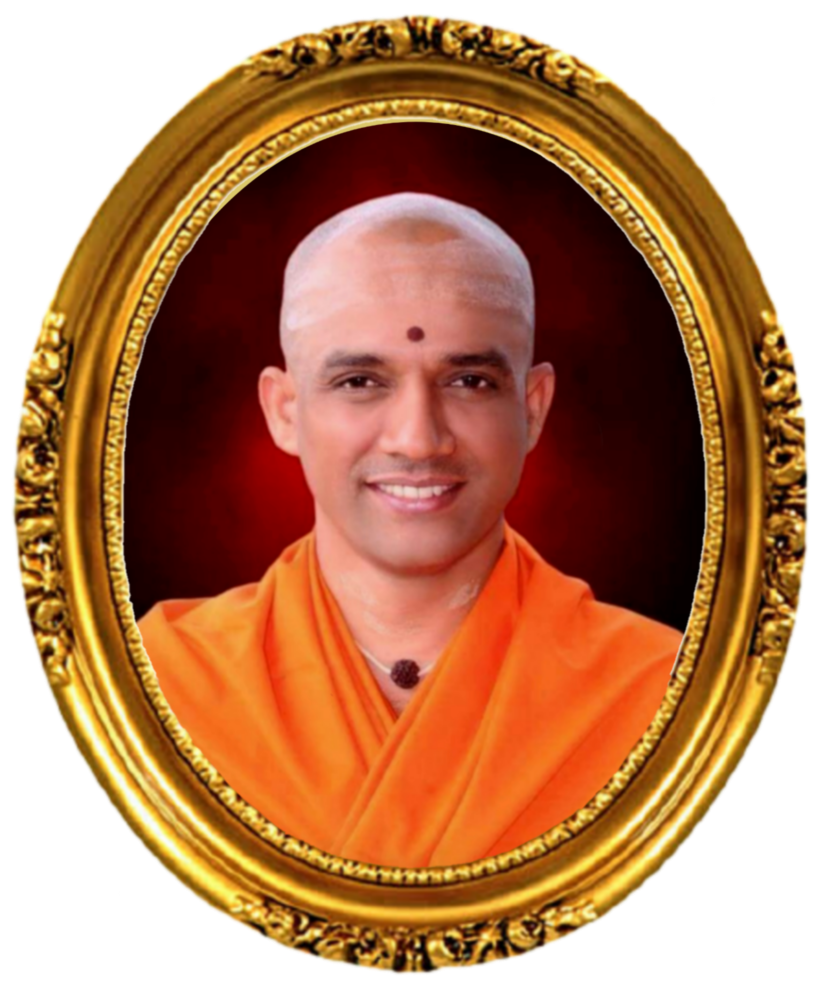Governing Council


Philosophy of Governance
Philosophy of Governance of BGSCET is to make the BoM participative, transparent, accountable, socially responsible and to follow ethical practices. BGSCET is committed to shared and participatory governance principles, designed to guide wise decision-making, supporting the college mission and strategic goals.
Academic Philosophy of BGSCET
- To use educational philosophical approaches: Perennialism, Essentialism, Progressivism, and Reconstructionism in classrooms: to cultivate intellect in worthwhile education through teaching of unchanging principles and ideas that are everlasting, providing experiences so that students can learn by doing
- To give facilities for all round development of a student during his stay in the institute.
- To identify and elucidate broader, often implicit principles and themes that are not necessarily exemplified in textbooks or syllabus, but are consistent with the beliefs and values that define and focus the vision and mission.
- To provide industry ready and socially sensitive holistic Engineers par excellence able to add value to themselves, their family, their place or work as well as to the country under all conditions recession or prosperity
- To create a stimulating educational environment where students can grow physically, mentally, emotionally, and socially meeting their full potential.
Board of Management
The BoM of the College is the Highest administrative body of the College. It monitors to ensures the achievement of mission and vision of BGSCET. It promotes future academic plans & research activities by providing a clear-cut direction for implementation, and overall monitoring of all activities. The BOM of BGSCET is individually and collectively responsible for overseeing the institution’s activities, determining its future direction, and fostering an environment in which the institutional mission is achieved. The Principal is the Member Secretary. The composition of BoM shall be as specified below.
- Chairman – President, BGSKH Education Trust
- Secretary – Management Representative / Trustee
- Member (Management Representative – Trustee)
- Member (Management Representative – Industrialist)
- Member (Management Representative – Educationist)
- Member Secretary, Director, BGSCET.
- Member Secretary, Principal, BGSCET.
The BoM exercises the following powers:
- Approve the Budget and Financial strategy of the Institution in accordance with the Institution’s strategic plan and ensures apt usage of the allocated funds. Approve the audited annual financial statements. Ensure proper system of financial management with proper resource allocation and management.
- Ensure transparency in procurement process;(review the audit reports internal and external)
- Human resource Management: Responsible for institution’s human resources and employment policy which includes ensuring proper pay and creating healthy employment conditions. Ensure appointments are made in clear, open and transparent manner. Develop strategy for staff retention. The Institution has an internal appeal and Redressing procedure which should be strengthened.
- Approve new programmes of study leading to UG, PG and Doctoral degrees
- Collectively and individually steward the Institution fulfilling its mission
- Act in good faith to the best interests of the Institution
- Ensure that the meeting of the BoM is conducted in free and transparent manner
- Approve the policies and programmes of the institution and monitor its effective implementation taking into cognizance the interest of the institution and stakeholders
- Maintain the highest ethical standards and not allow any conflict of interest.
- Open to feedback and suggestions regarding improvement in governance
- Optimum utilization of the institution’s land and buildings. As part of this responsibility, it identifies the property and space requirements, provides for a planned Programme of maintenance. The BoM has put in place the Building and Works Sub-committee to assist implementation of its strategies.
- Risk Management, Control and Governance; effective risk monitoring mechanism both in terms of financial and well as academic management through
- An effective internal and external audit mechanism.
- A well-knit strategic plan with proper allocation of resources. The Management monitors the strategic plan execution, both short term and long term goals, through periodical reviews (quarterly) of progress.
- Interaction with students and all stakeholders on continuous basis
- Transparency in its governance
- Establish various committees/academic bodies/boards etc. to monitor the activities and make recommendations. Involve faculties in decision making process as part of these committees. The recommendations of the committee are evaluated by the Principal and on specific issues which are falling within the power of Management, approvals are sought as and when necessary/ mandated.
- Health and Safety: The major responsibility for ensuring good health and safety of employees, students and others in the campus.
- Perform such other functions as may be necessary from time to time for the all-round development and to accomplish the objectives of the Institute.


